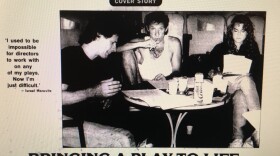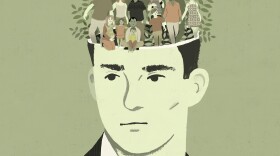
Rhaina Cohen
Rhaina Cohen is an associate producer for the social science show Hidden Brain. She's especially proud of episodes she produced on why sexual assault allegations are now being taken seriously, on obstacles to friendship that men face and why we rehash difficult memories.
She got her start in public radio as an intern for Planet Money. Before entering the audio world, Cohen was part of the production team for ABC News' This Week with George Stephanopoulos. She also worked as a research assistant for Rebecca Traister on the New York Timesbestselling book All The Single Ladies: Unmarried Women and the Rise of an Independent Nation,and for Peter Slevin on the biography Michelle Obama: A Life.
As a Marshall Scholar, Cohen received a master's in comparative social policy from Oxford (and while there, competed in a dance style that hasn't yet gained ground in the United States: acrobatic rock'n'roll). She holds a bachelor's degree in American studies from Northwestern University. In college and graduate school she researched family policies, traveling to Denmark, Iceland and a U.S. military base. As a 2018 FASPE fellow, she studied journalism ethics in Germany and Poland.
-
Buying a home is a conventional milestone for couples. But as home prices skyrocket, many Americans are buying homes with someone who isn't their romantic partner.
-
Far from being "the great equalizer," COVID-19 has disproportionately sickened and killed African Americans and Latinos in the U.S. Many of the reasons for these inequalities reach back to before the pandemic began. This week, we return to a 2019 episode that investigates a specific source of racial disparities in medicine and beyond—and considers an uncomfortable solution.
-
On this week's radio show, we trace the history of fake news. Plus, in a time when accurate information is so important, we ask who ultimately bears the cost when no one wants to pay for local news.
-
Amidst the confusion and chaos of the COVID-19 pandemic, many of us have sought out a long-trusted lifeline: the local newspaper. Though the value of local journalism is more apparent now than ever, newspapers are not thriving. They're collapsing. For many communities, this means fewer local stories and job losses. But new research suggests there's another consequence that's harder to spot — one that comes with a hefty price tag for residents. This week on Hidden Brain, we return to a 2018 episode that's acutely relevant today and ask, who bears the cost when nobody wants to pay?
-
Confined to our homes, many of us are experiencing a newfound appreciation for our social relationships. What we may not realize — and what physicians and researchers have only recently started emphasizing — is the importance of these connections to our physical health. This week, we talk with former U.S. Surgeon General Vivek Murthy about why he considers loneliness a matter of public health, and how we can all deepen our social ties.
-
A virus is more than a biological organism. It's a social organism. Historian Nancy Bristow shares the lessons about human behavior that we can take away from a century-old pandemic.
-
Decades ago, a group of women accused a prominent playwright of sexual misconduct. For the most part, the complaints went nowhere. In 2017, more women came forward. This time, people listened.
-
Violent crimes committed by Muslims are much more likely to be reported as "terrorism." And that has disturbing consequences for the way Muslims are perceived.
-
A culture of racism can infect us all. On this week's radio show, we discuss the implicit biases we carry that have been forged by the society around us.








